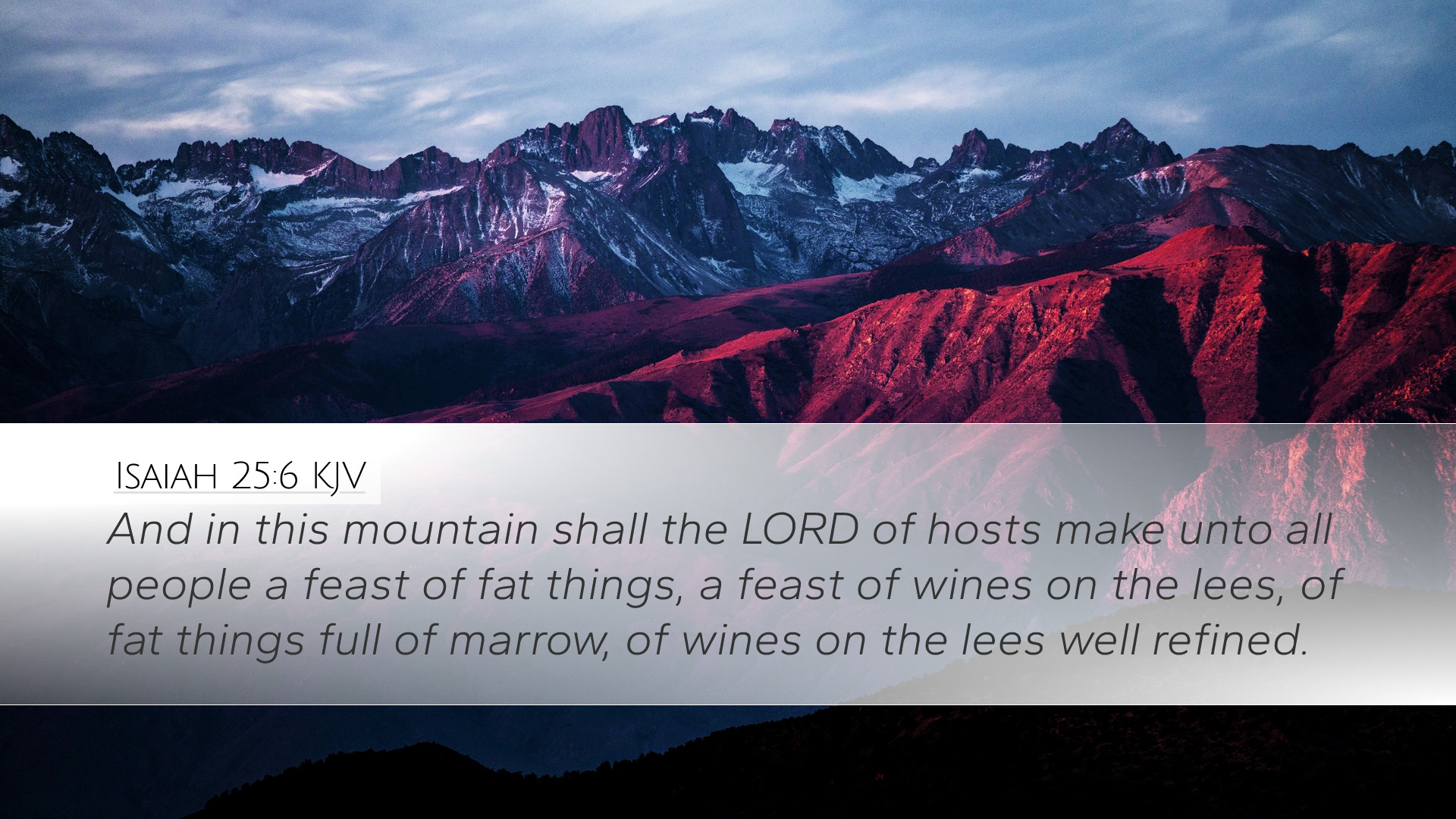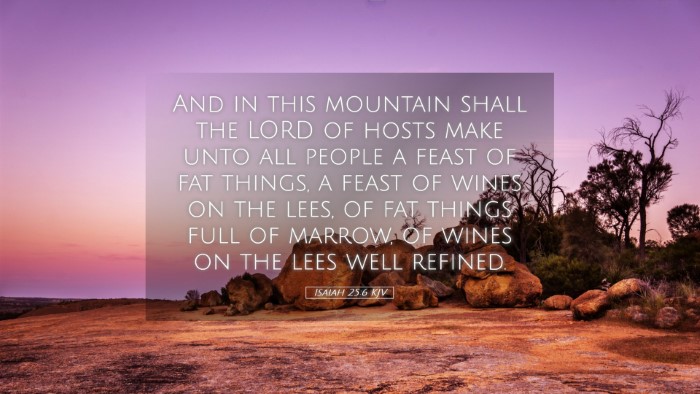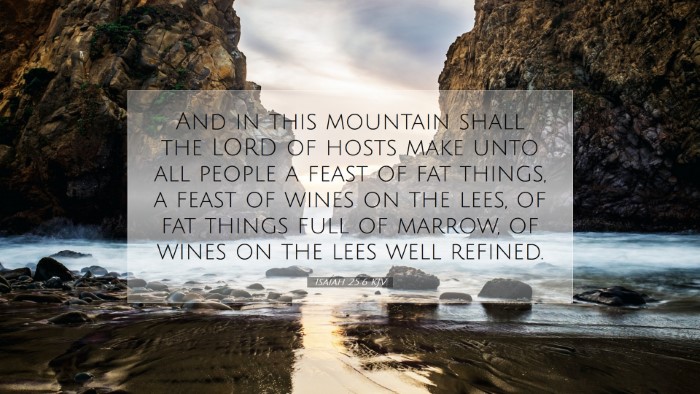Commentary on Isaiah 25:6
Isaiah 25:6 states:
"And in this mountain shall the Lord of hosts make unto all people a feast of fat things, a feast of wines on the lees, of fat things full of marrow, of wines on the lees well refined."
This verse serves as a prophetic proclamation declaring the abundant blessings and divine grace that God will lavish upon His people. Below is a synthesis of insights from renowned public domain commentaries, including those of Matthew Henry, Albert Barnes, and Adam Clarke, providing profound reflections intended for pastors, scholars, and students.
Contextual Overview
Isaiah's prophecy often reflects the oscillation between judgment and hope. Chapter 25, in particular, shifts toward a prophetic vision of salvation, celebrating God’s ultimate redemption of His people. This chapter stands as a comforting message in light of future fulfillment, portraying a scene of joy and richness that God prepares for those who trust in Him.
Theological Themes
- The Mountain of the Lord: The “mountain” refers to God’s holy presence—not only a literal place but a figurative representation of His reign and authority.
- The Universality of God’s Grace: Isaiah emphasizes that this feast is not only for Israel but for “all people,” suggesting that God’s salvation extends to the Gentiles and all humanity.
- Divine Abundance: The imagery of a feast filled with “fat things” and “wines on the lees” speaks to bountiful provision and richness, symbolizing spiritual satisfaction and joy.
Insights from Commentators
Matthew Henry
Matthew Henry observes that this verse highlights the "greatness of God's grace" and how it contrasts with the "scarcity of earthly pleasures." He emphasizes that the "feast" God's people will experience symbolizes both physical abundance and spiritual nourishment. Henry also points out the significance of “wines on the lees,” which represent maturity and richness, an allegory for the richness of God’s blessings over time.
Albert Barnes
Albert Barnes provides an expository view that underscores the concept of God's divine invitation to a sumptuous feast. He notes that this imagery represents harmony, joy, and fulfillment promised by the Lord. Barnes asserts that the phrase "of fat things full of marrow" indicates the Lord's provision of the very best to His people, suggesting not just survival but overwhelming joy and abundance as a fulfillment of God's promises.
Adam Clarke
Adam Clarke offers insight into the historical context, suggesting that the metaphor of the feast indicates a pivotal time in eschatological history, where the separation between the righteous and the unrighteous is complete and the faithful are rewarded. He reflects on the elements of the feast, stating that while the “fat things” represent earthly indulgences, the focus is fundamentally on the spiritual richness God offers through His covenant and salvation.
Spiritual Applications
- Invitation to Feast: This passage serves as an invitation for believers to immerse themselves in the richness of God’s provision, both materially and spiritually. It encourages pastors and teachers to share this nourishing truth in their ministries.
- Encouragement in Trials: As the original context of Isaiah addressed a beleaguered people, this verse provides encouragement to those facing difficulties, reinforcing the assurance that God prepares a generous reward for His faithful.
- Unity among Believers: The universality of the invitation calls for unity within the church, emphasizing the mission to share the gospel across cultural and ethnic divides, illuminating the inclusiveness of God's plan.
Conclusion
Isaiah 25:6 provides a rich tapestry of imagery that conveys the depth of God's love and the abundance of His kingdom. As pastors, theologians, and students reflect on this passage, they are invited to contemplate the richness of the feast God provides—not just for themselves but for all who seek Him. It is a timeless reminder of the blessings awaiting those who walk in faith, serving as a testament to God's unwavering promise of hope, joy, and ultimate salvation.


